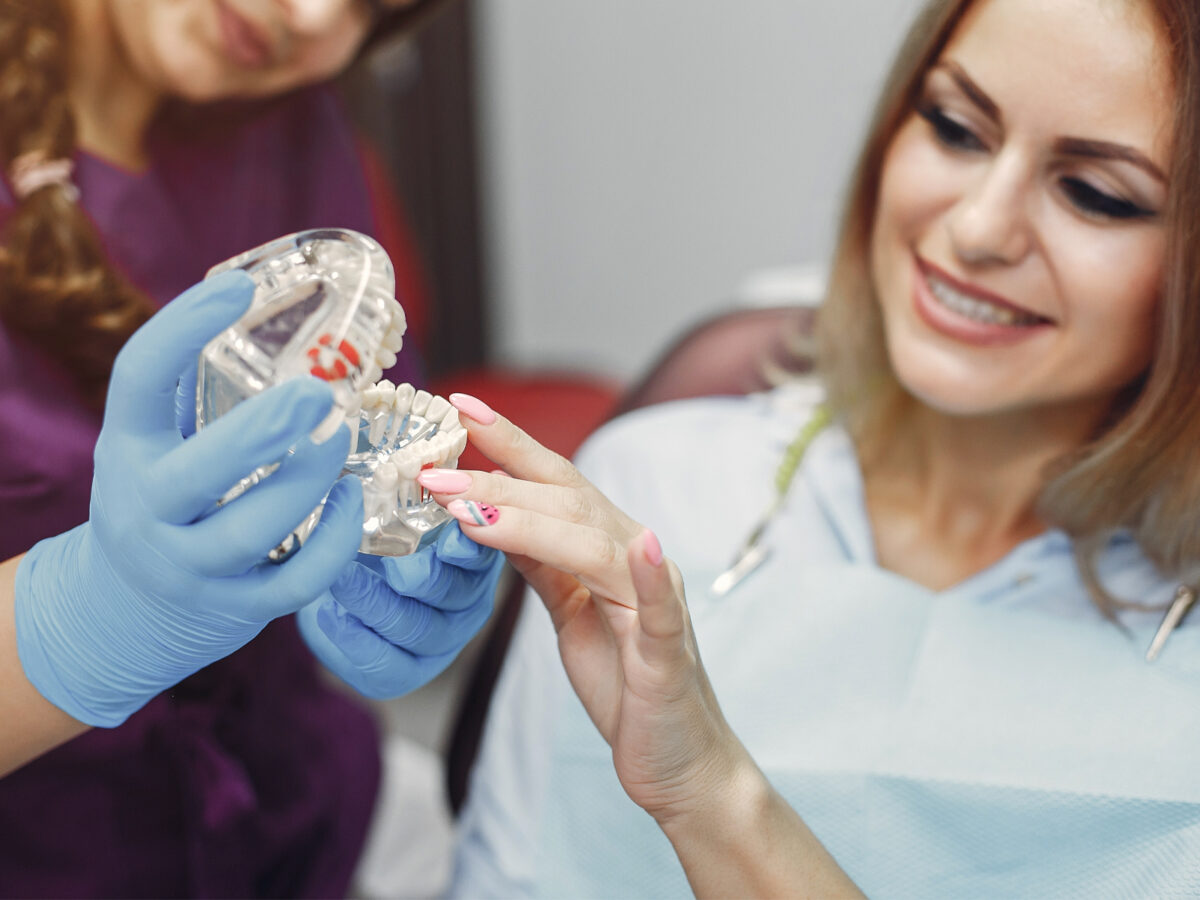Blog
Dental hygiene tips for healthy teeth & gums

Common Partial Dentures Problems And How To Fix Them
If you have lost any of your natural teeth, partial dentures are a great option. They aid with speaking and chewing in addition to improving the appearance of a smile. However, partial dentures can present certain challenges, just like any other dental appliance. Discomfort and the adjustment period to dentures can seriously affect a patient’s quality of life, causing pain and sore spots to speaking difficulties. This blog will discuss common issues with partial dentures and offer solutions.
Typical Issues With Partial Dentures and Solutions
Denture Discomfort: This is one of the most common issues for new partial denture wearers. A foreign object in the mouth can cause irritation and pain. Here are several steps to resolve this problem:
Be patient: Remember that getting used to dentures takes time. They may feel invasive at first, but your mouth’s tissues will adjust over time, and the discomfort should decrease.
Frequent adjustments: Schedule regular adjustments with your dentist. They can fine-tune the fit of your partial dentures for optimal comfort.
Dental hygiene: Good dental hygiene is essential to avoid infections or tender spots. Clean your mouth and dentures gently to prevent inflammation.
Sore Spots: Friction between the soft tissues of your mouth and partial dentures can cause localized areas of discomfort or inflammation. Here’s how to treat sore spots:
Speak with your dentist: If you notice sore spots, contact your dentist. They can identify the problem areas and adjust your dentures accordingly.
Oral gel: Over-the-counter oral gels may provide temporary relief. These gels can numb the sore areas and reduce discomfort until you can see your dentist.
Rinse with warm salt water: This can help the healing process by soothing uncomfortable areas.
Getting Used to Dentures:
Adjusting to a new set of partial dentures can be challenging. Here’s how to make it more manageable:
Get comfortable with speaking: Speaking with partial dentures can be difficult at first. Improve your clarity by reading aloud or repeating challenging words until you’re comfortable.
Begin with soft foods: Start with a soft diet to ease the transition. Gradually reintroduce harder foods as you become accustomed to chewing with your dentures.
Listen to your dentist: Follow the specific instructions your dentist gives you for adjusting to your dentures.
Denture Discomfort and Speech Problems:
Speech problems can be a common concern for partial denture wearers, often due to the bulkiness of the dentures. Here are some strategies for dealing with speech issues:
Practice makes perfect: To become comfortable speaking with your dentures, practice by reading aloud or having conversations with friends and family. The more you speak, the more natural it will sound.
Denture adhesive: This can help keep your partial dentures in place and reduce the chance of movement while you speak.
Professional advice: If speech problems persist, consult your dentist for further adjustments to ensure your dentures fit comfortably and don’t interfere with your speech.
In summary:
Partial dentures can significantly improve the lives of those missing teeth, but they come with their own set of challenges. Many wearers experience sore spots, speech difficulties, and general discomfort. Thankfully, these issues can be resolved with the right approach and guidance.
Patience is key when adjusting to partial dentures. Your dentist plays a vital role in ensuring your comfort and satisfaction with your dentures. With regular check-ups and adjustments, you can overcome most problems related to denture discomfort.
